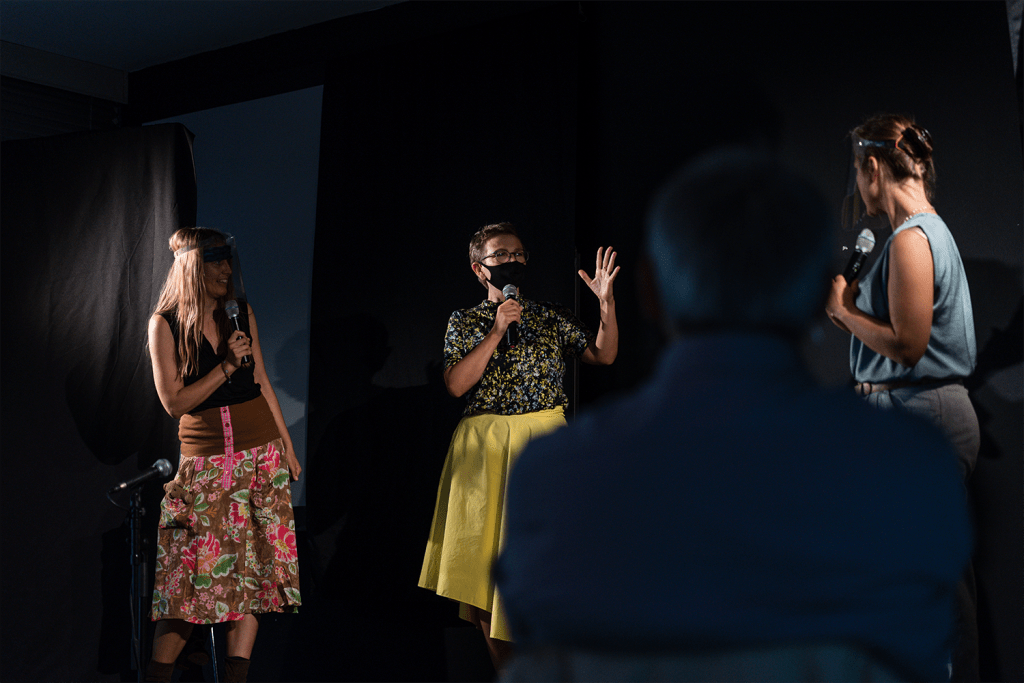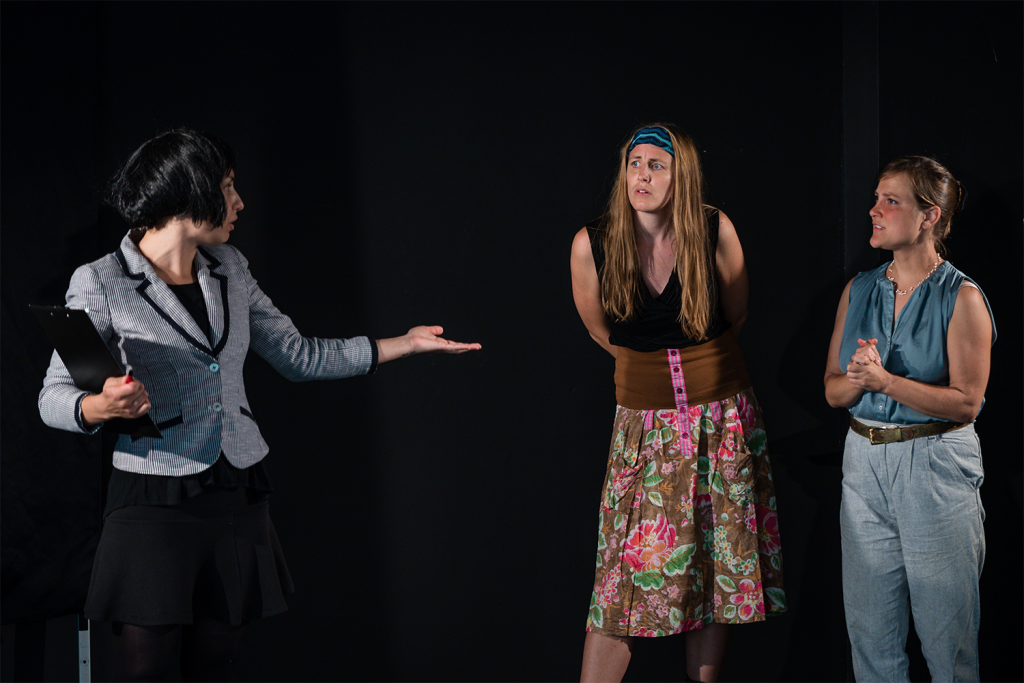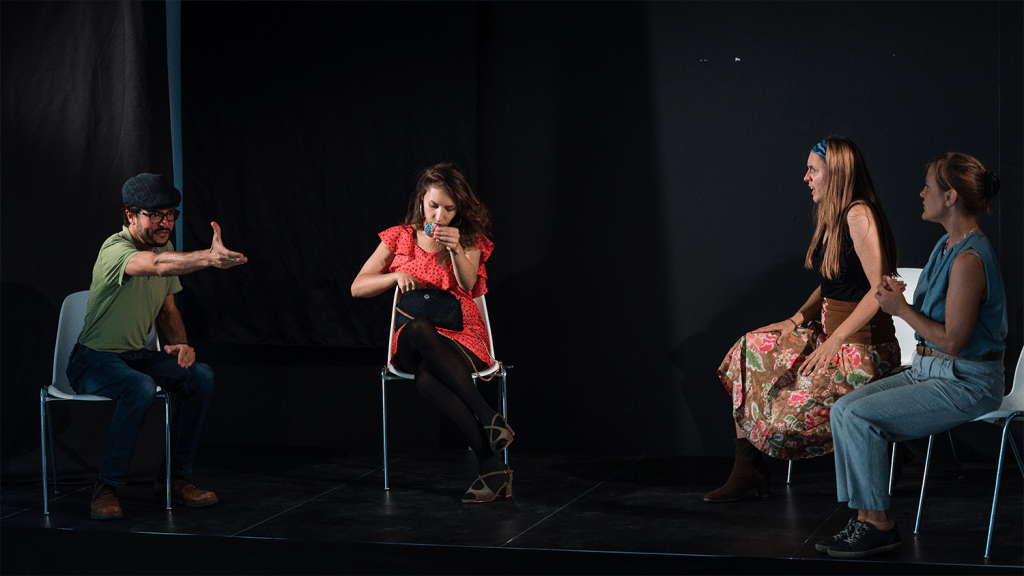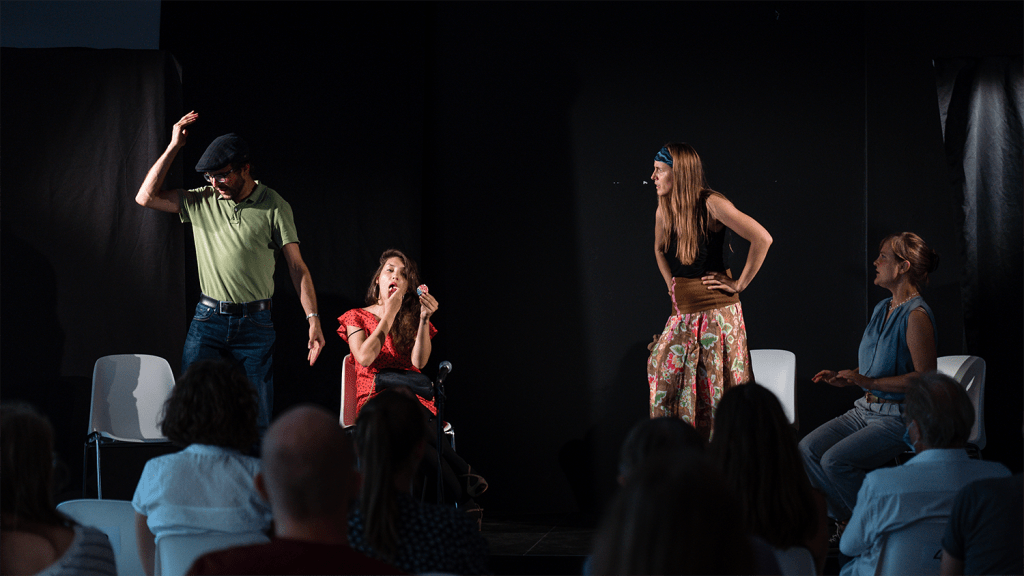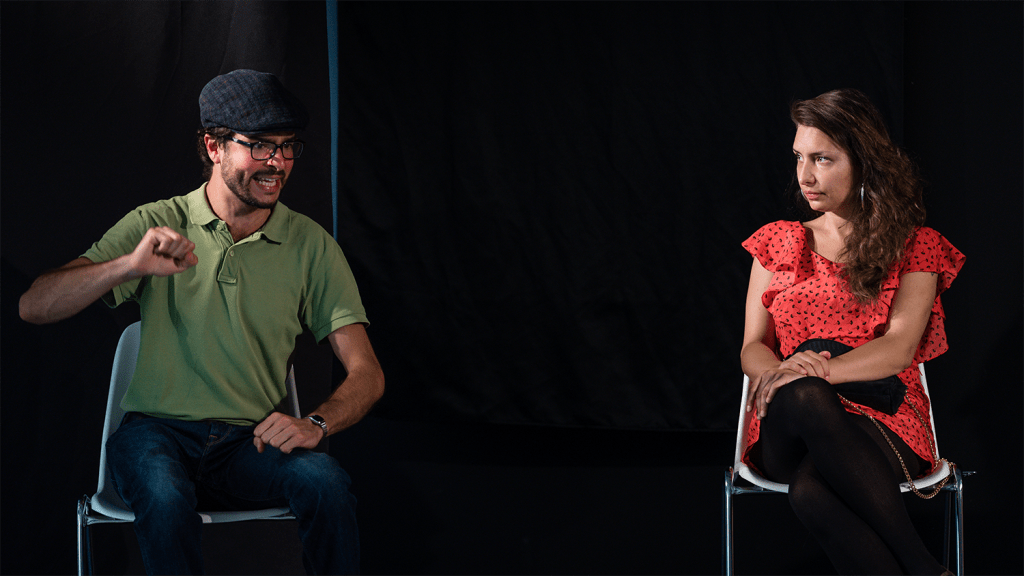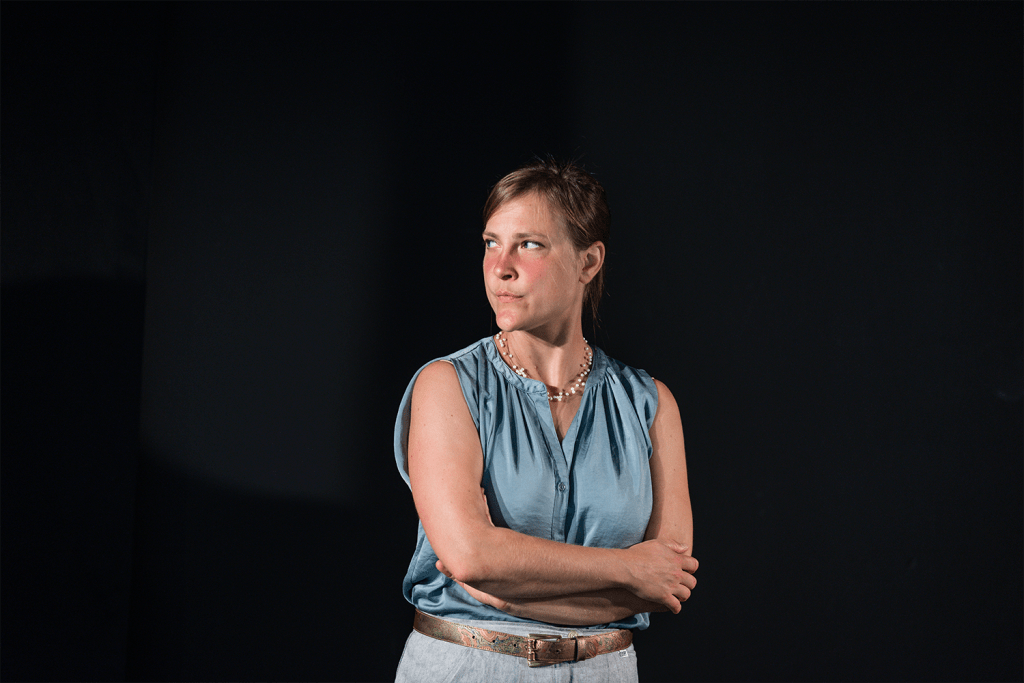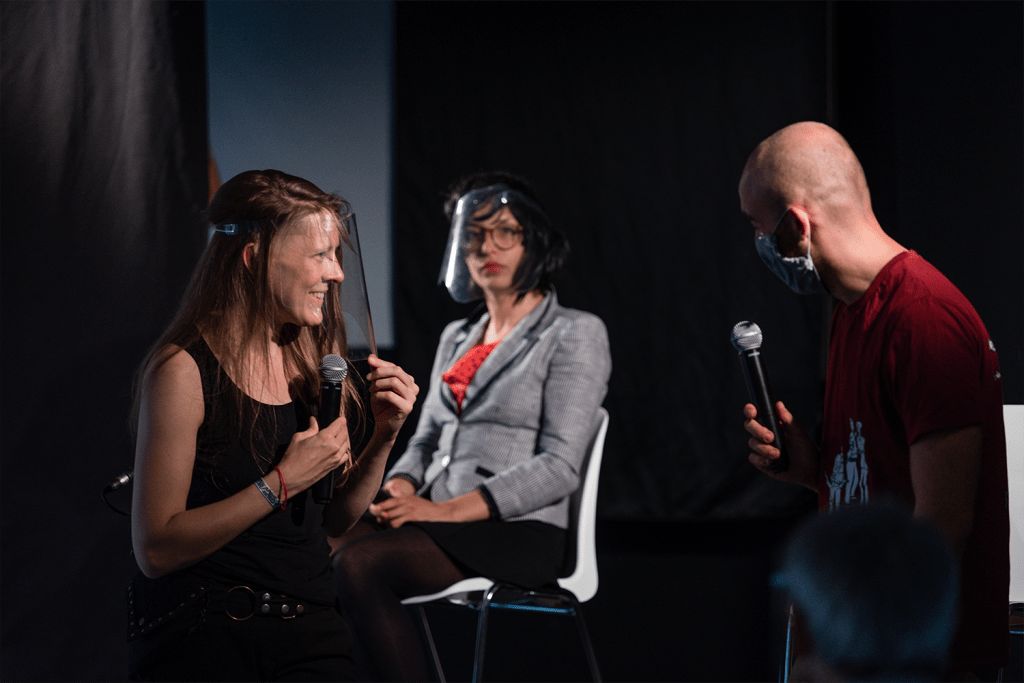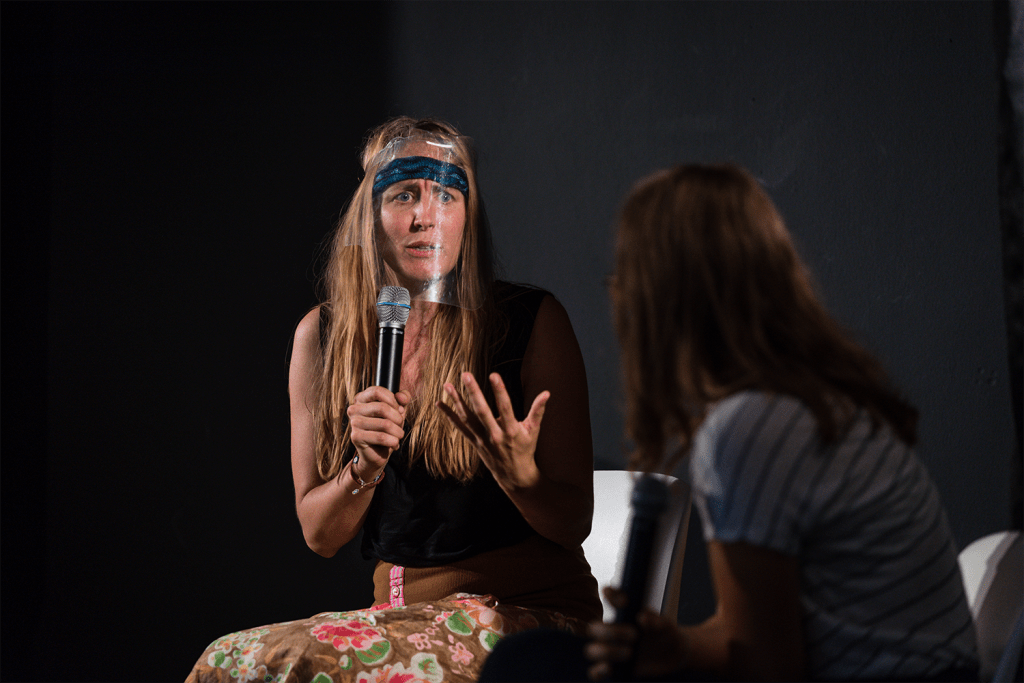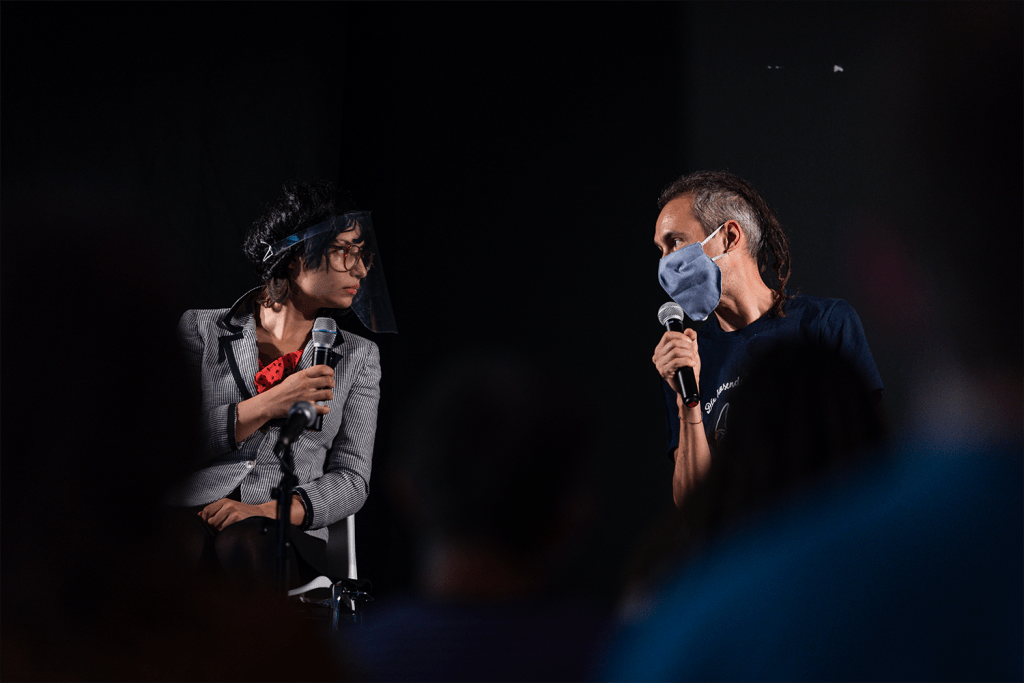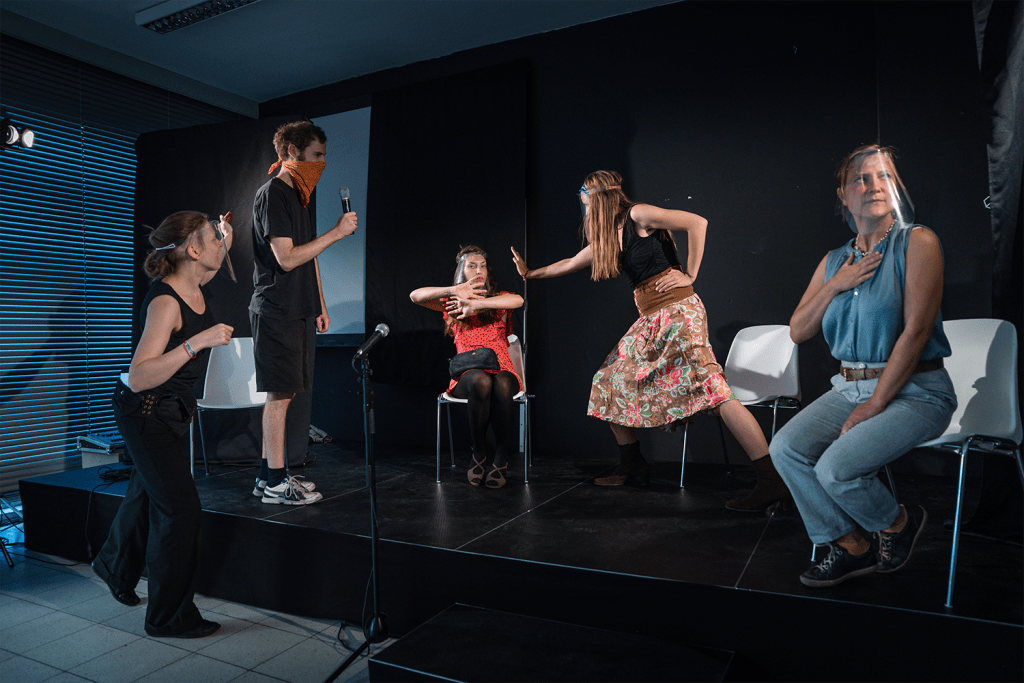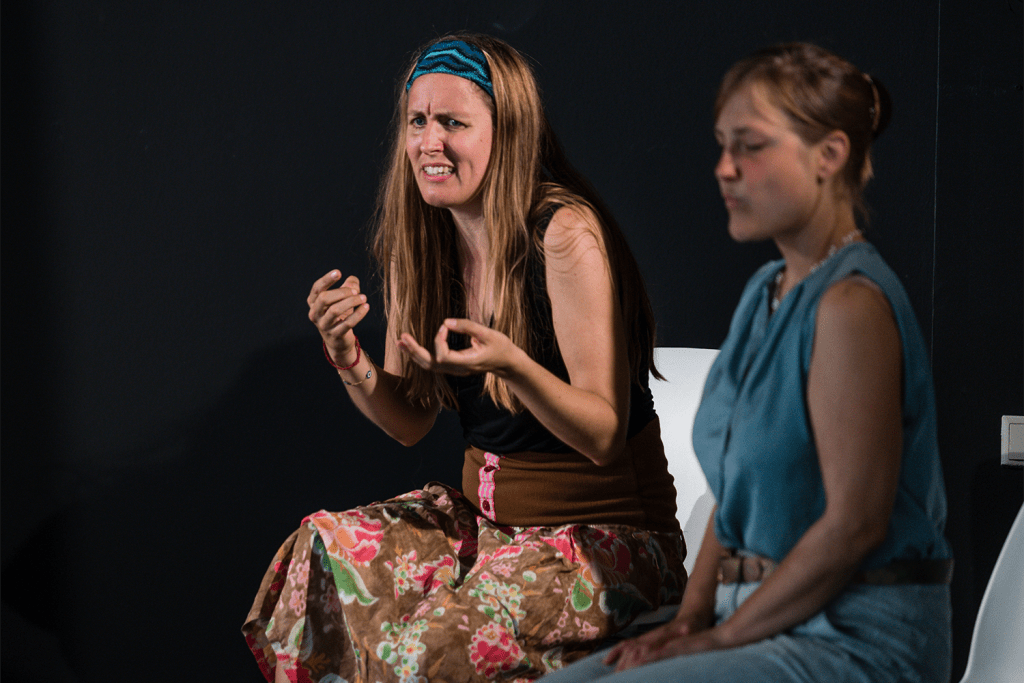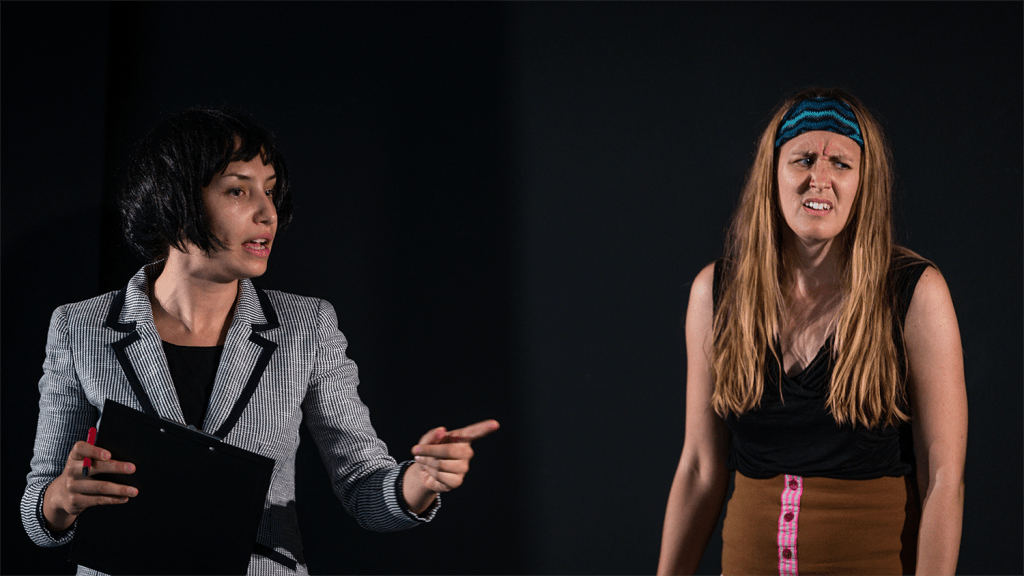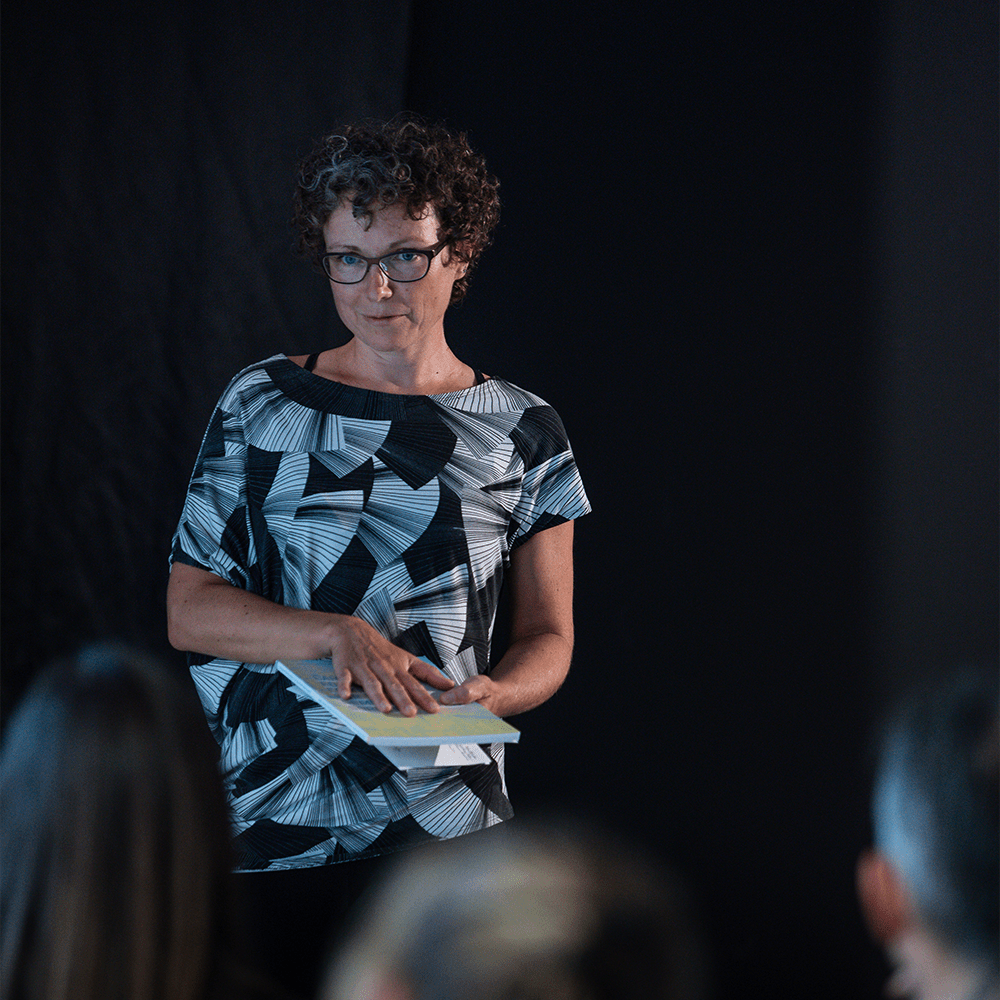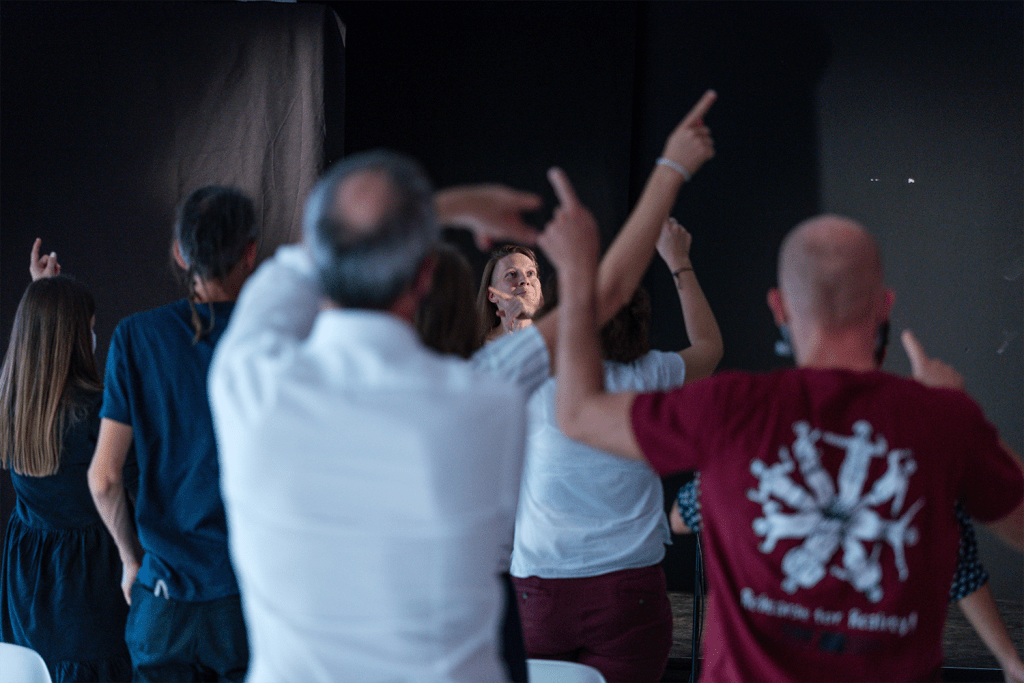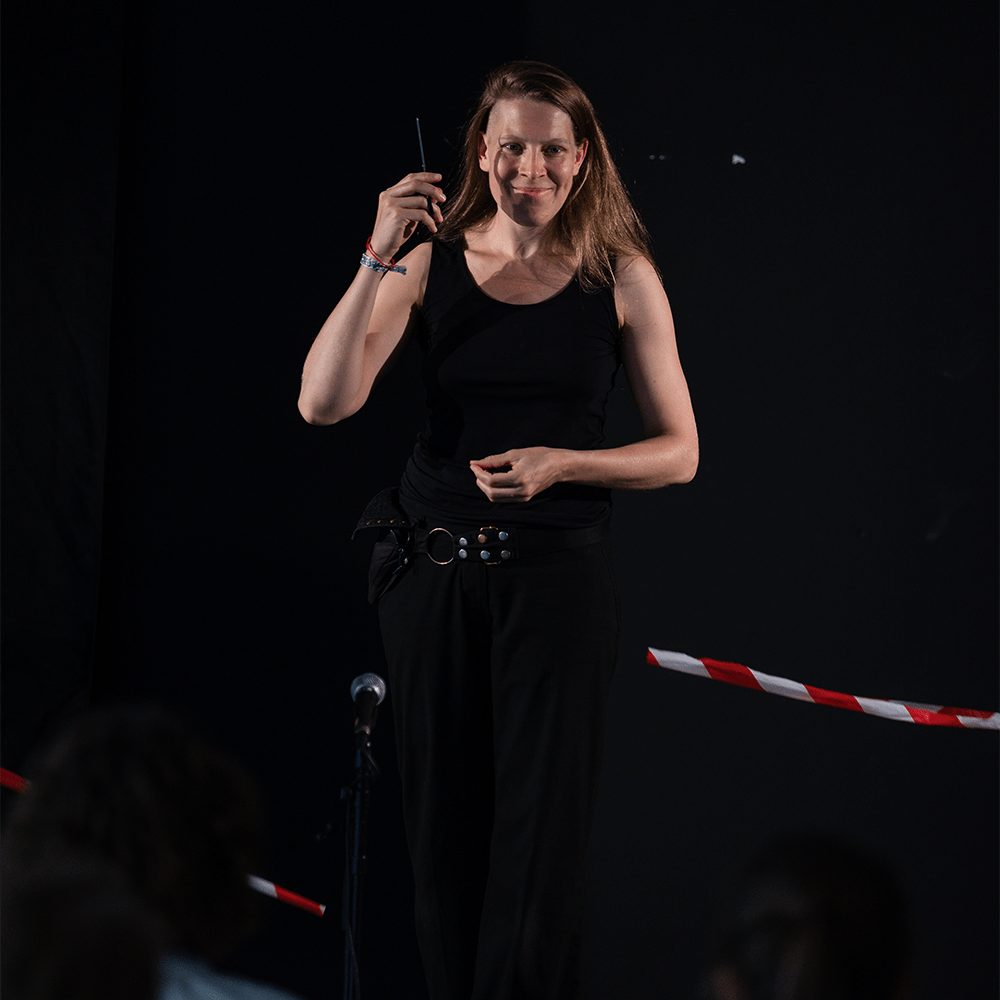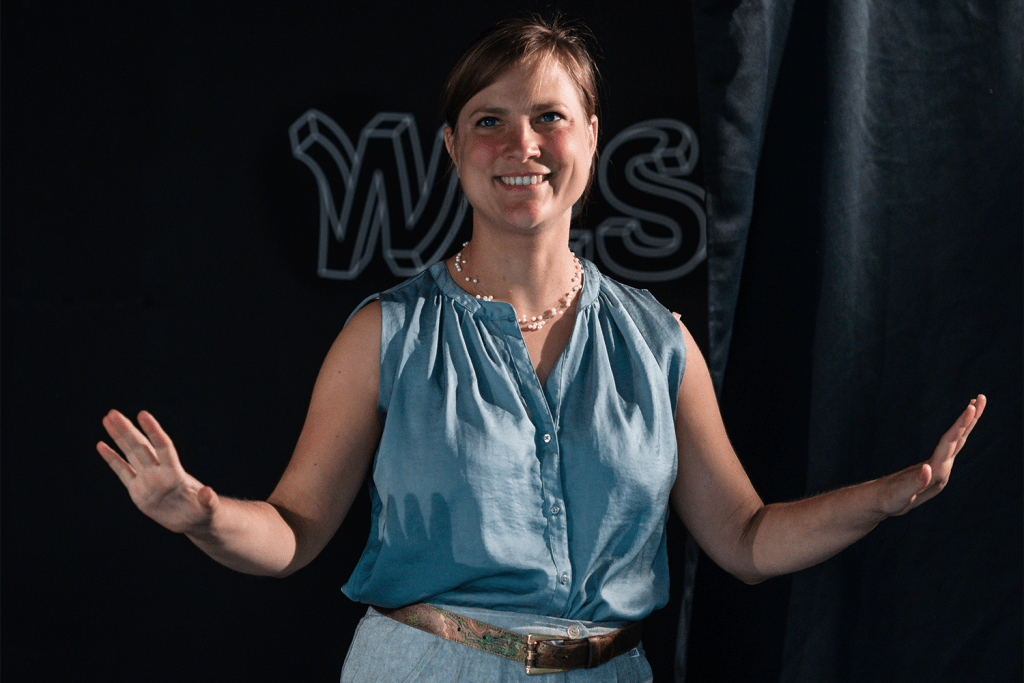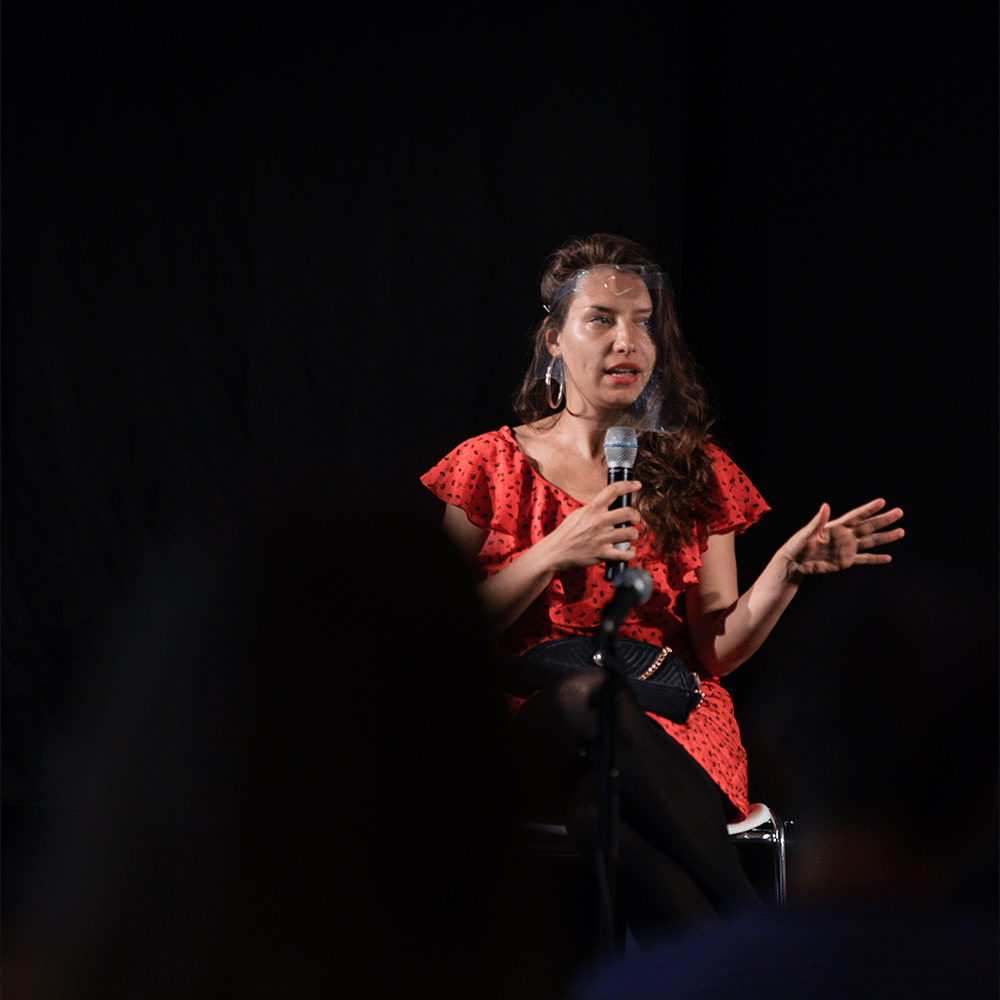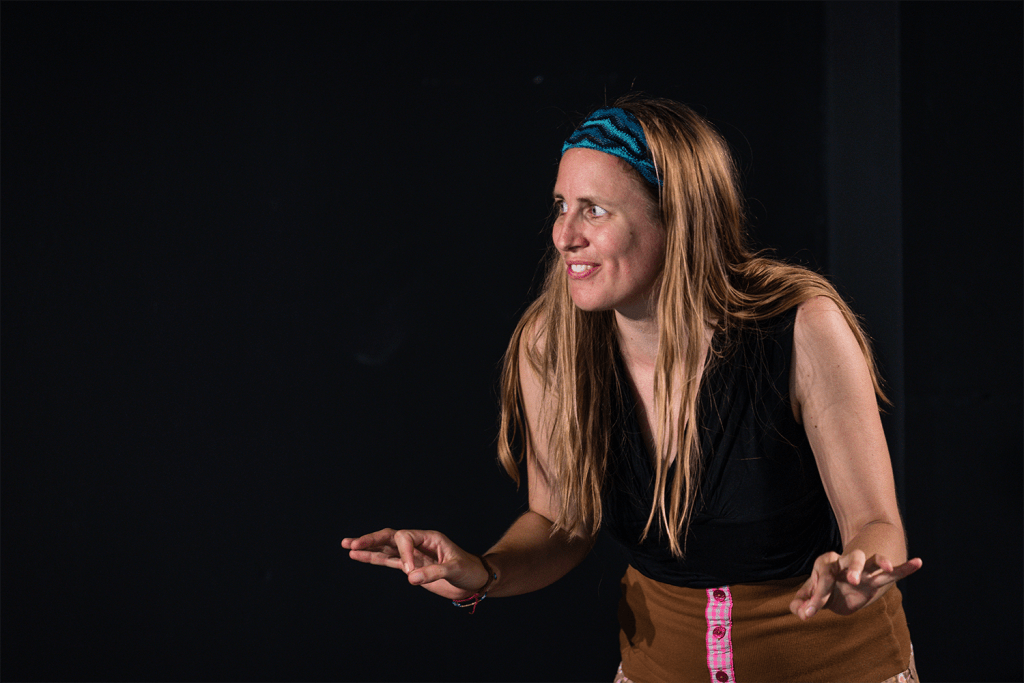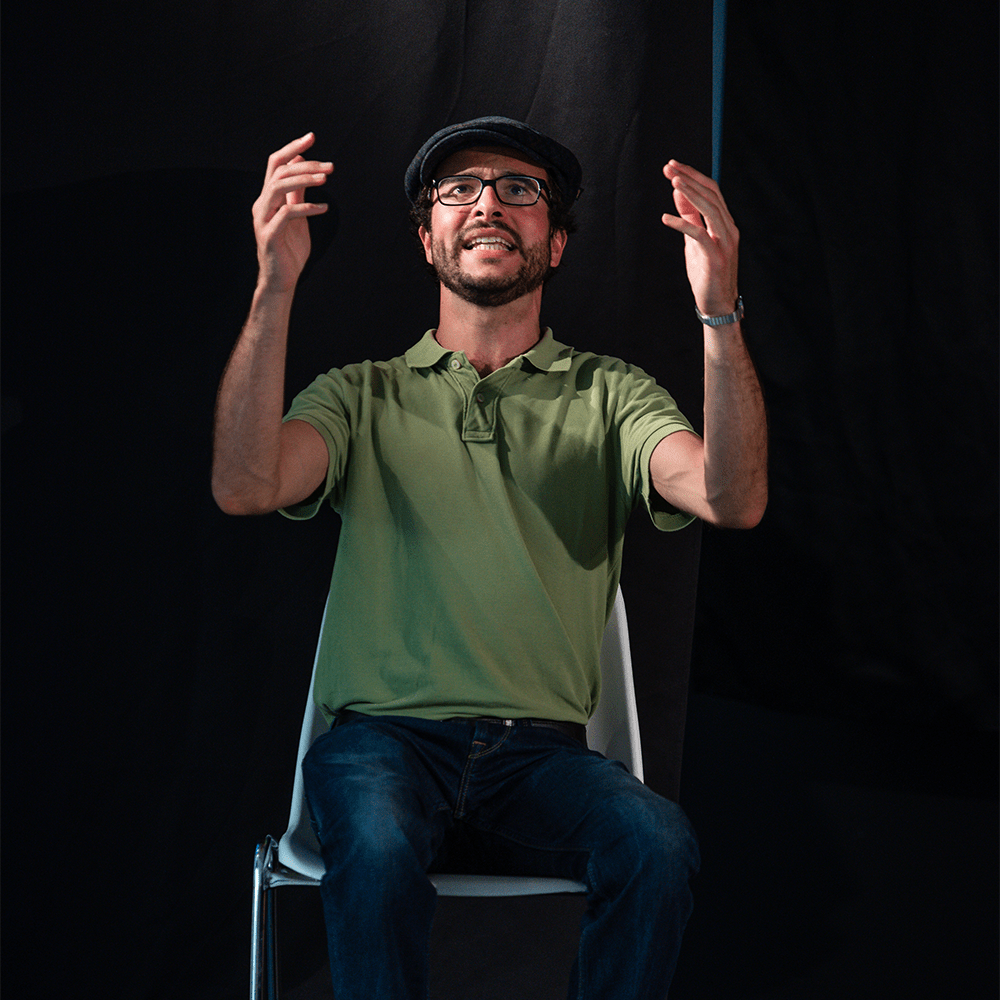Report Forum Theatre: Everyone sits in the audience at a distance of more than one meter and waits in suspense. It’s shortly after five on a Monday evening in September 2020 and it’s about to start: This Forum Theatre can still take place before the regulations for events become stricter again because of the increase in Covid-19 infections. We are in Vienna West, the temporary use of the former Sophienspital on the Gürtel opposite the Westbahnhof. The play has already been shown once: Now the performers on stage have to resort to Plexiglas face protection, because now the play will be performed again – with the possibility for interventions from the audience.
“I have a good eye for the safety of all! That’s not the way it works here: All the furniture and bookcases – and yet another bicycle in the aisle! It all has to go!“ – The aisle, planned as a meeting place and a place for exchange, furnished by the residents, is unsafe – from a fire protection point of view: “You have probably never seen the devastating consequences of a fire?“ But the residents do not give up, they want to keep their meeting places and ask: “Can’t you just sign?“ – “No! My responsibility. Your safety!“ Silence reigns after the scene with the fire safety officer: Where is there still room to intervene? The silence of the audience sometimes seems to transcend into powerlessness, because this topic reemerges in every project. Solutions within the confines of regulatory boundaries would largely need to be reimagined.
The Forum Theatre play shows everyday scenes from living together. Scenes that are performed once and invite the audience to try out ideas in the second run: Ideas on how to solve the conflicts or at least to mitigate them. The abundance of conflicts is great, although only four parties and a few everyday scenes are shown. Some of the guests in the audience may already be scaling this into their own professional lives: to hundreds of residents in a residential complex. With theatre, everyone is easily right in the middle of the action: not only intellectually, but also emotionally – with their whole body.
Making something common out of the many side by side
Another scene: The laundry room on the roof with large windows is too nice for this use – instead, the four residents are considering a new use: yoga, table tennis, children’s play or a gallery? Each of them has their own ideas – a rapprochement seems impossible. One person from the audience intervenes and changes the scene and with it the dynamics in the group: She suggests a week of festival where all ideas should have room – organized by the idea givers themselves.
What previously seemed desperate and hopeless is now giving way to skeptical interest. After the intervention, the audience remarks: “The rigidity was broken down and for the first time the possibility of negotiation was in the air.“ For when people move into a house at the same time, a community of destiny is created – but for a living community, relationships between people are needed, which first have to be established, cultivated and often negotiated.
Communication culture versus complaint culture
The complaint culture of the today’s time, is still strengthened by social media and over the time as communication culture internalized – so also in the play: “Crime scene staircase 4: Garbage room – bio ton“, a comment in addition: “Also on staircase 2 it lacks intelligence.“ Such posts and further comments, recorded from the “off“, are part of the play and precede a meeting of the residents. An audience intervention on stage dares to attempt to moderate this meeting. The attempt bears fruit only hesitantly, since it takes time and practice to change to an appreciative communication. A conclusion after the intervention: at the beginning, it often needs outside support.
And it turns out: There is a need for shared positive experiences, to which one can always dock again if a relapse into the learned complaint culture threatens to stifle constructive exchange. The counterpart: listening, leaving excuses – listening to each voice one after the other in a circle. A communication culture of cooperation – learned, practiced and internalized – requires (many) personal meetings.
Powerlessness becomes rebellion?
When the housing project opened, everyone was still joyful and full of expectations and wishes for the pleasant life in the new house – but two years later, people are disillusioned, resigned or ready for rebellion: “Unless we break in at night – when nobody sees us! Breaking into your own house? In response to a noise complaint, the property management had limited the opening hours of the swimming pool to 10 am to 5 pm, excluded external guests and assigned the compliance with these new rules to a security service – at the expense of the residents. The level of frustration is high, as is resignation: “An email with constructive suggestions to the property management? What has this achieved so far but more rules?“
A guest has an idea and intervenes on stage: instead of spending money on the security service, he proposes to organize a supervision with the residents: Externally instructed joint negotiation – instead of commanding the property management to put up notices. Hesitantly it is fruitful, but the will to do something new is small. For the property management in the Forum Theatre play looks after many houses. Too many. The employees are overworked and get lost in the daily business: There is little time to deal with the causes of the complaints and individual solutions in the supported houses. This led to the idea of a new scene:
Shaping community needs resources
The property management employee addresses the management floor and demands more resources for the care of the houses. Unsuccessfully. Also the arguments of the bad PR by the high discontent of the inhabitants inside in the cared for houses do not convince: If it costs money, the readiness to change is small, is the result of this improvised scene on the stage.
In contrast one reports from the audiance: “Building groups are at the beginning more work, but then the group takes the work off you – so the realization of a builder!“ Transferred to conventional houses, the initiation and structure work of tenants advisory councils could have a similar effect: They collect the moods in the house and solve many conflicts internally – without the housing management.
What is missing? What are the real needs?
At the end there was much laughter. Another newly conceived scene was improvised: A party together in the house. In the now exuberant mood on stage, the characters were asked to choose another character – the scene was frozen and the performers were asked to answer from their roles: “What would you like to say to this character – what you would never say out loud?“
Now the inner, the actual, needs came to light: “It’s a pity that you weren’t at the table tennis tournament, I love to spend time with you!“ and another resident to the hated permanent complainer in the facility: “I would love to have you as a father figure for my son!“ Quite a contrast to the everyday conflicts the residents indulge in. What would happen if we would deal more with our real needs and dared to communicate them – instead of remaining in our (protective) patterns?
What if? Every situation offers the opportunity to (re-)act differently every day – the effects of even small interventions can be experienced and tested playfully in Forum Theatre and then transferred more easily into everyday life.
A conclusion: What protection do we want and need?
Now, with the annual flu epidemic and COVID-19 infections on the rise again, the struggle is on to find a balance between protecting and allowing social life. The negative consequences of the lockdown are too severe to bring about a second one: People become lonely, fear for their existence and move less – this endangers our mental and physical health.
How about transferring this struggle for balance in the pandemic into the future development of safety in our homes: fire protection is one aspect, protection by the community, which needs meeting places and places for exchange in order to care, is another. What might a new balancing of the importance of these aspects look like?
How do we – each and every one of us – define security? What all contributes to our feeling comfortable, protected and confident about the future?
Background to the Forum Theatre play ‘Caring for Communities’
In summer 2017, we followed an invitation by Angelika Fitz and Elke Krasny to take part in the public workspace of their project Care+Repair in the Nordbahnhalle; a project connected to the Vienna Biennale and organized by the Architekturzentrum Wien (Az W). In this way, the group Action Archive from Stockholm began to collaborate with the city planner and activist Beatrice Stude from Vienna. Our work followed a joint interest in common rooms and the commons. Since 2014, Action Archive has been exploring the history and role of common rooms in Swedish welfare housing. This publication collects the notes from our ethnographic field studies of summer 2017 of newly built common rooms in the Nordbahnviertel (the Northern Railway District) in Vienna. It comprises excerpts from guided home tours and interviews with representatives of the Nordbahn district management and a non-profit housing developer. This publication serves as point of departure for a Forum Theatre piece, which deals with common rooms as a conflict area between bureaucracy and community action that is shown in connection with the exhibition Critical Care: Architecture and Urbanism for a Broken Planet (Az W, 2019).
The book ‘Caring for Communities’ is available here for free download for all. It also includes the follow-up to the 11th North Station Lecture ‘Community Spaces – What Frustrates, What Works?
The forum theatre piece ‘Caring for Communities’ was developed as part of the project by Action Archive + Beatrice Stude from TdU Vienna – Theatre of the Oppressed Vienna, under the direction of Magoa Hanke and Veronika Vitovic, based on the study and premiered by performers in September 2019. For the performance of the IBA_Vienna 2020 interim presentation, aspects of the pandemic were transferred into the play.
